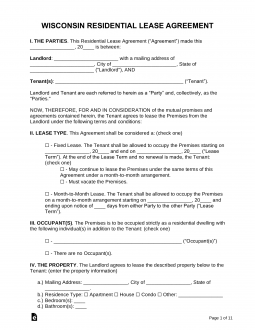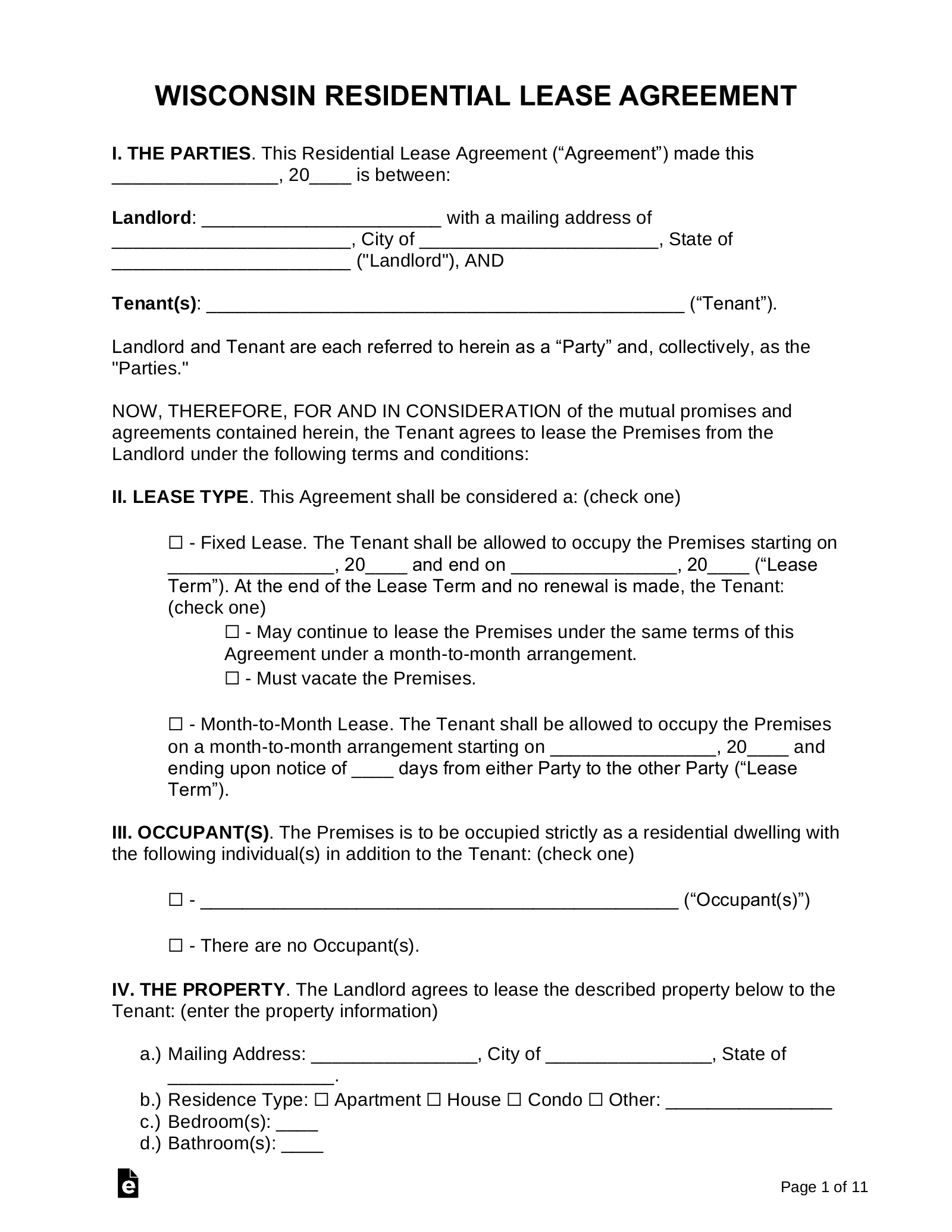Updated March 08, 2024
A Wisconsin lease agreement is a legal document between a landlord and a tenant governing the rental of residential or commercial property. Before authorizing the lease, the landlord will typically carry out a background check on the tenant’s credit and income. Once signed, the agreement is legally binding on both parties.
Table of Contents |
Agreement Types (7)
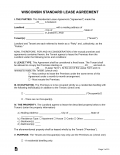 Standard Residential Lease Agreement – Usually a one-year lease but a contract with a specified start and end date. Standard Residential Lease Agreement – Usually a one-year lease but a contract with a specified start and end date.
Download: PDF, MS Word, OpenDocument |
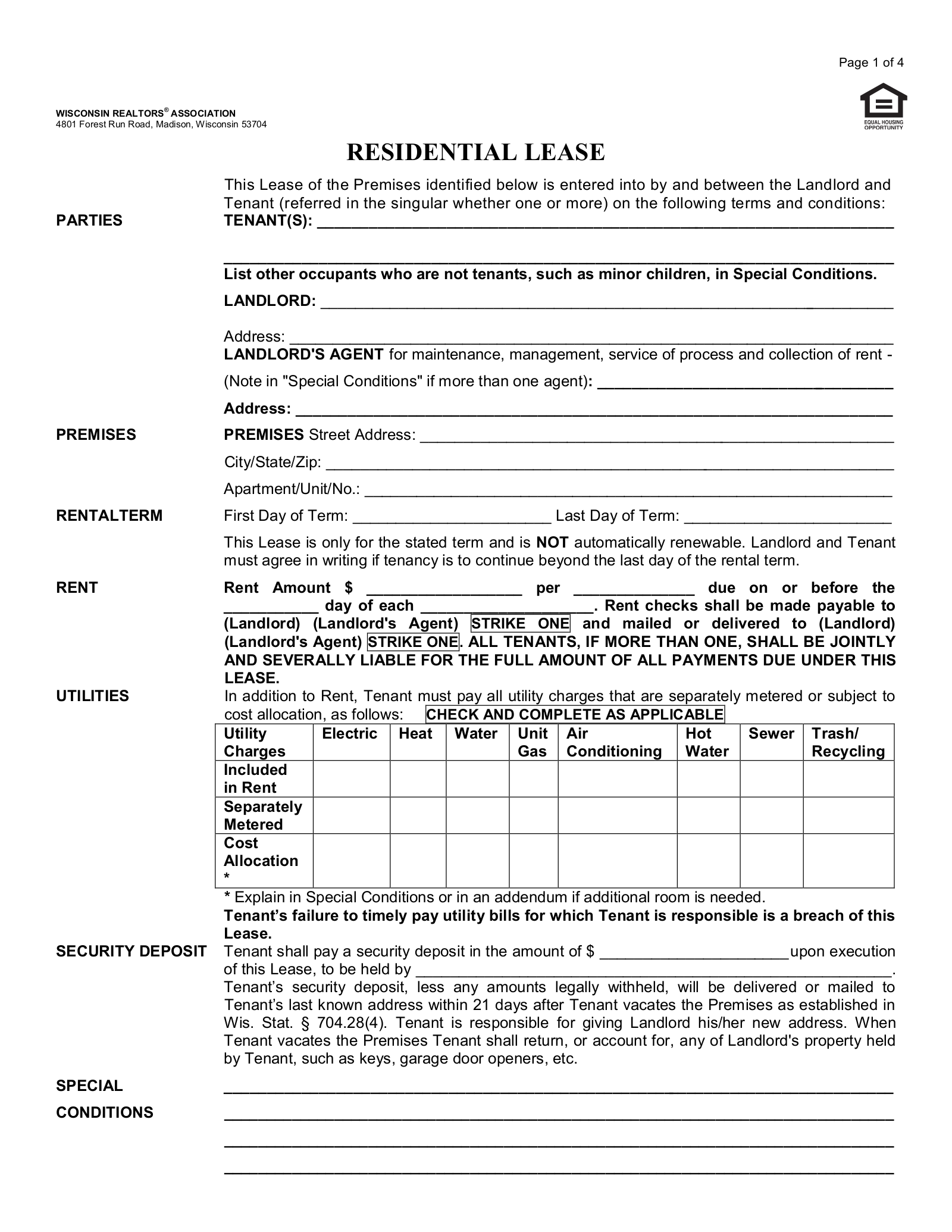 Association of Realtors Lease – Provided by the Wisconsin Association of Realtors for standard residential tenancies. Association of Realtors Lease – Provided by the Wisconsin Association of Realtors for standard residential tenancies.
Download: PDF |
 Commercial Lease Agreement – Contract intended for business-related use such as a retail store, office (professional use), or industrial (warehouse/storage). Not for the use of livable conditions. Commercial Lease Agreement – Contract intended for business-related use such as a retail store, office (professional use), or industrial (warehouse/storage). Not for the use of livable conditions.
Download: PDF, MS Word, OpenDocument |
 Month-to-Month Lease Agreement – An arrangement where the tenant pays the landlord on a monthly basis with no set end date. Rather, the form is canceled by notice to the other party of at least 28 days. Month-to-Month Lease Agreement – An arrangement where the tenant pays the landlord on a monthly basis with no set end date. Rather, the form is canceled by notice to the other party of at least 28 days.
Download: PDF, MS Word, OpenDocument |
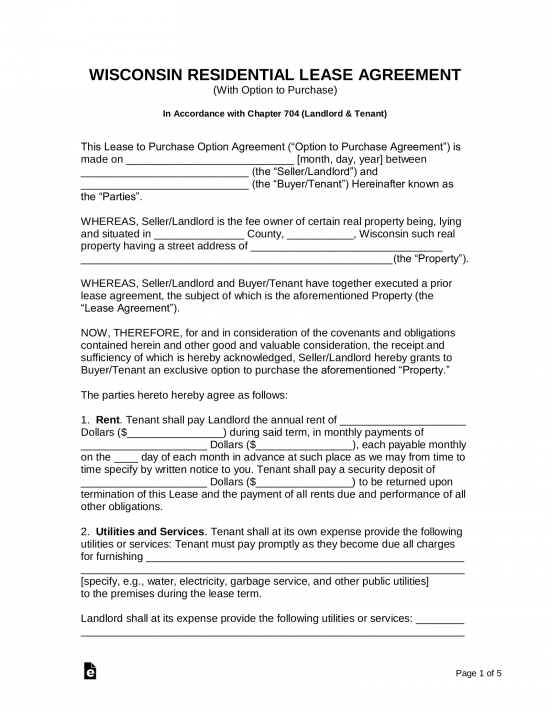 Rent-to-Own Lease Agreement – Residential tenancy that gives the right to buy the space/property to the tenant. Rent-to-Own Lease Agreement – Residential tenancy that gives the right to buy the space/property to the tenant.
Download: PDF, MS Word, OpenDocument |
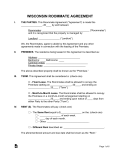 Room Rental (Roommate) Agreement – A situation with more than one person occupying the same home and the document establishes the rules for common areas, chores, and general terms for the property. Room Rental (Roommate) Agreement – A situation with more than one person occupying the same home and the document establishes the rules for common areas, chores, and general terms for the property.
Download: PDF |
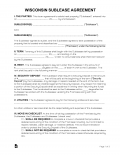 Sublease Agreement – A tenant who decides to rent their space to another individual. Also known as ‘subletting’, the original tenant’s master lease must allow for this use, or the landlord’s written consent must be granted. Sublease Agreement – A tenant who decides to rent their space to another individual. Also known as ‘subletting’, the original tenant’s master lease must allow for this use, or the landlord’s written consent must be granted.
Download: PDF |
Required Disclosures (6)
- Agent/Landlord Identification – The landlord must disclose to the tenant in writing the name and address of the owner of the premises, any agent thereof, and any individual authorized to manage the property and collect rent.[1]
- Lead-Based Paint Disclosure – Under federal law, the landlord of any residential building built prior to 1978 must inform their tenants of the possible existence of lead-based paint on the premises.
- Move-in Checklist (conditional) – If the landlord accepts a security deposit, they must notify the tenant in writing that they have the right to inspect the unit for damages or to know what damages the previous tenant was held liable for.[2]
- Notice of Domestic Abuse Addendum – Specific language detailing a tenant’s legal protections if they are a victim of domestic abuse, sexual assault, or stalking must be included in the lease agreement or in an attached addendum.[3]
- Water/Heat/Electricity Disclosure – If charges for water, heat, or electricity are not included in the rent, the landlord must disclose this information to the tenant before entering a lease agreement.[4]
- Security Deposit Receipt (conditional) – If the tenant pays the security deposit in cash, the landlord must provide them with a written receipt. No receipt is required for a security deposit paid with a check.[5]
Security Deposits
Maximum Amount – There is no statutory limit on the amount that a Wisconsin landlord can request for a security deposit.
Collecting Interest – The landlord is not required under Wisconsin state law to collect or pay interest on a security deposit.
Receipt – The landlord must provide the tenant with a receipt for any security deposit paid in cash. If the security deposit is paid with a check, a receipt is not required.[5]
Returning – The landlord must return to the tenant the balance of the security deposit, minus any withheld amounts, within 21 days of the tenant having vacated the unit.[6]
- Itemized List – The landlord must provide the tenant with a written statement accounting for any withheld portions of the security deposit within 21 days of the end of tenancy.[7]
When is Rent Due?
Grace Period – There is no mandatory grace period for rent on a residential property. If rent is not paid on the due date established in the lease agreement, the landlord can serve the tenant with a five-day notice to pay the rent or vacate the property.[8]
Maximum Late Fee – Although Wisconsin state law does not limit the amount that a landlord can charge a residential tenant for the late payment of rent, the law does require that the late fee be included in the lease agreement.[9]
NSF Fee – $15 is the maximum amount that a landlord can charge the tenant for paying with a bad check.[10]
Withholding Rent – Although Wisconsin law permits rent abatement when the conditions of the property materially impact the health and safety of the tenant, the law does not specify what amount of the rent the tenant may withhold.[11]
Right to Enter (Landlord)
Standard Access – The landlord may enter the premises for ordinary maintenance or inspection reasons only at reasonable times with at least 12 hours’ notice.[12]
Immediate Access – The landlord may enter the property without notice if a health or safety emergency exists, or if the tenant is absent and the landlord believes that entry is necessary to protect the property from damage.[13]
Abandonment
Absence – No statewide statute establishes the length of time that a tenant must be absent from the dwelling for the rental property to be considered abandoned.
Breaking the Lease – If the tenant or their child faces an imminent threat of physical harm from another person by remaining on the premises, then the tenant may terminate the lease without penalty after giving notice to the landlord.[14]
Tenant’s Utility Shutoff – If the tenant’s failure to maintain utilities on the premises violates the terms of the lease agreement or their legal obligations, the landlord may serve a five-day notice that the tenant must remedy the violation or be evicted.[15]
Unclaimed Property – The landlord must keep any prescription medication or medical equipment left behind by a tenant for at least seven days, after which time they may dispose of it.[16] The landlord is not required to keep any other property.

